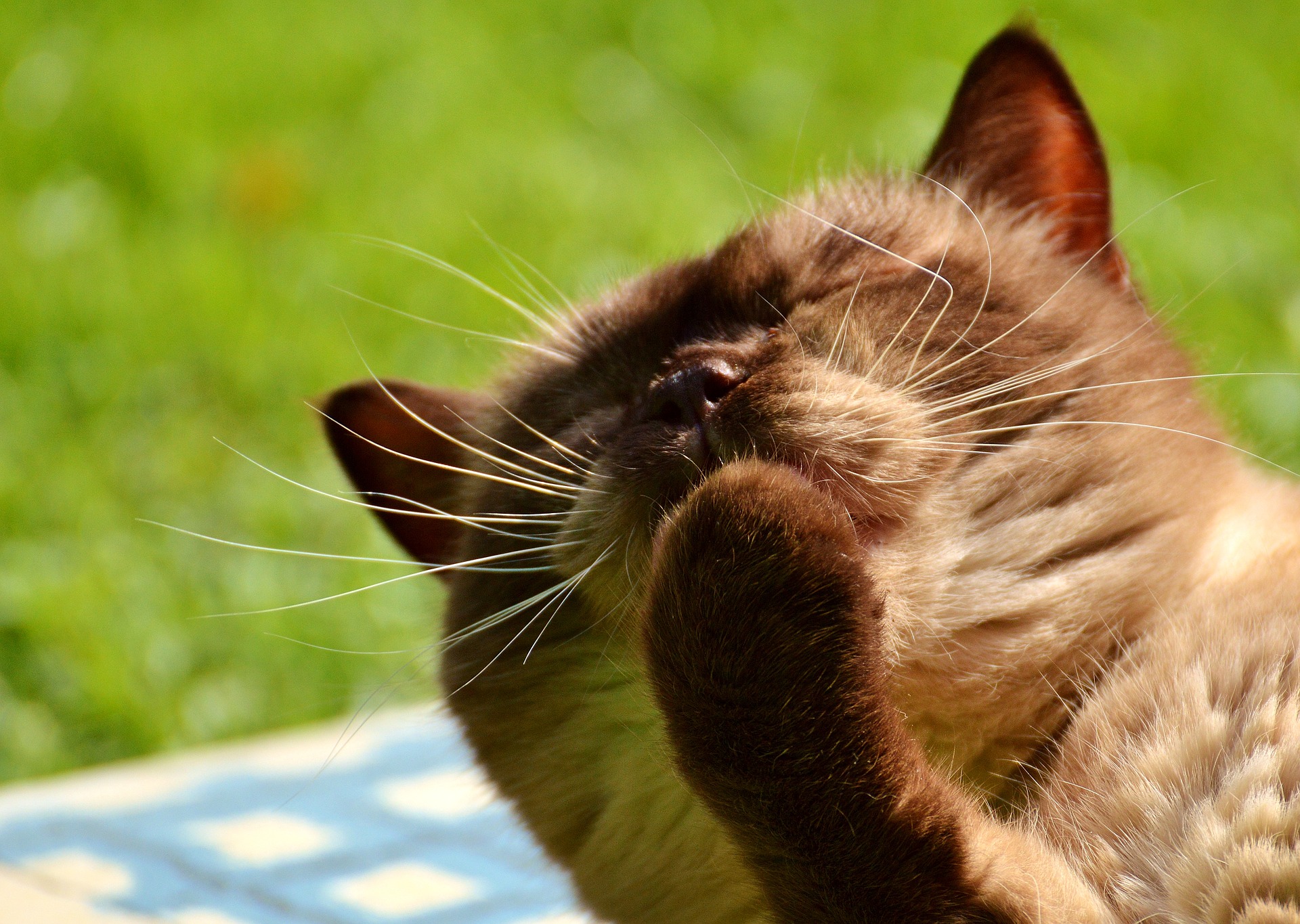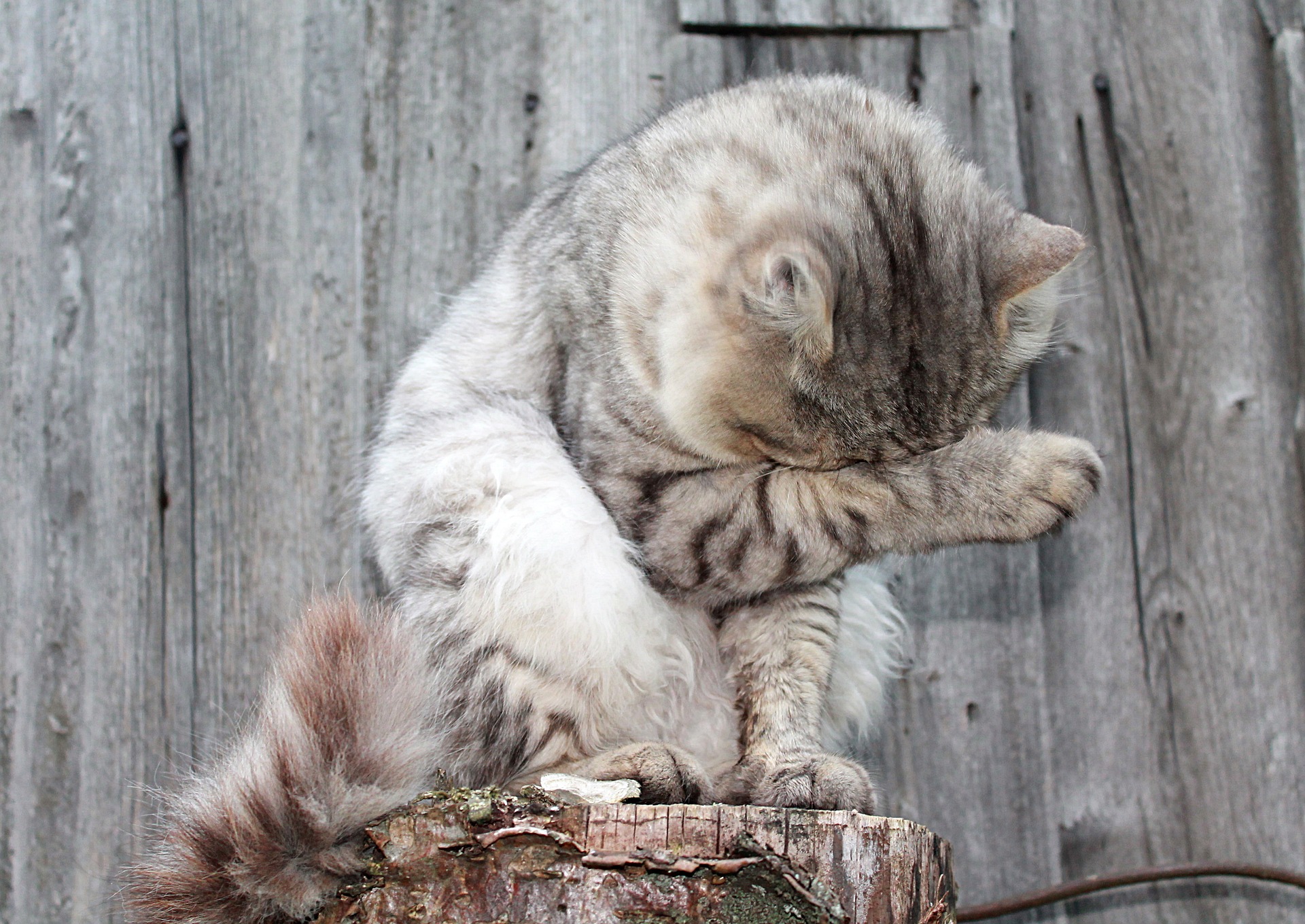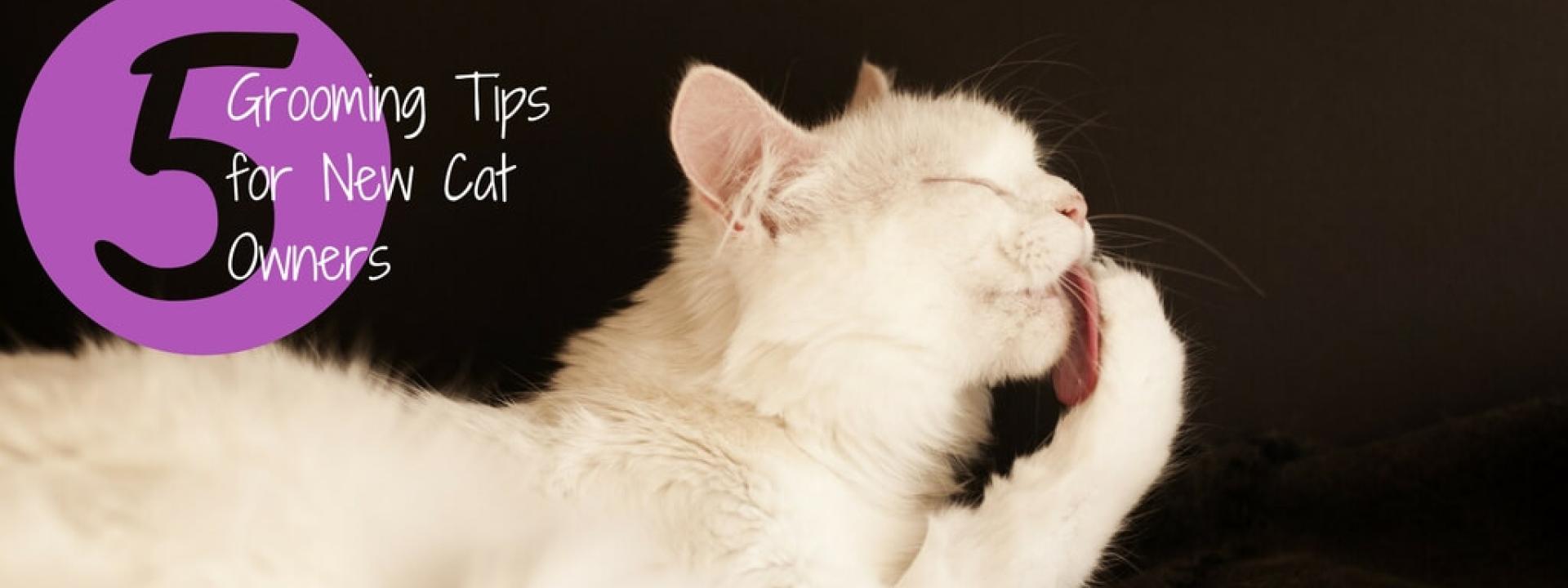You might think that since your cat spends approximately half her waking hours grooming herself, she doesn’t need your help. But she does!
After all, while kitties are excellent at cleaning their exterior, they could use your help with the interior. Plus, they can't trim their nails or teeth very easily on their own.
When you help streamline your cat's grooming, you have a happier and healthier kitty. Another benefit of holding regular grooming sessions with your cat(s) is that you strengthen your bond and you can use the opportunity to run your hands over their bodies to look for any unusual lumps or bumps that may need a veterinarian’s attention.
5 Elements of Cat Grooming for Cat Lovers
- Brushing - You already know that your cat sheds. You probably even know that brushing your cat will remove a lot of loose fur at one time, making clean up easier. What you may not know is that regular brushing also removes dead skin and dirt, plus it stimulates your cat’s blood circulation. All of this can help your pet feel better in general.
- Paws - Your kitty's paws spend a lot of time on various surfaces, and they catch her while she performs acrobatic feats like leaping from tall countertops. It's important to keep them in tiptop shape. You can help your cat put her best paw forward by keeping the nails trimmed (see below) and making sure there's no dirt or debris trapped between your cat's toes. If you have a long-haired cat, you may need to trim the fur between the toes on a regular basis because it can get tangled, trap dirt, and irritate the skin between the toes.
If you notice that your cat's paws are dirty, then you can use a damp cloth to wipe them down. Even though cats are fastidious about their grooming, sometimes they need a little help.

- Claws - Some cats love a scratching post, while others prefer your furniture. No matter which camp yours falls into, your cat probably needs a regular nail trim. If your cat goes outside and sharpens her claws on tree trunks and the like they may be okay, but strictly indoor cats need nail trims. Yes, this can be challenging the first time you introduce your cat to the idea, as you can imagine. The key is not to rush in wielding claw trimmers like a sumo wrestler and expect your cat to appreciate the gesture.
Instead, wait until your cat is in a comfortable position, preferably relaxing with you. Then, you can play with the kitty nail clippers in an offhand way. Let them make their “snapping” sound. Don’t do anything with them with your cat. If you're watching TV with one hand on the clippers idly fidgeting with them, you've got the right idea. You’re letting your cat get used to the sound and the object.
Over time -- this may be a day or two later -- you can move to one of your cat’s paws and use the clippers. You’ll need to hold the paw firmly in one hand with the clippers in the other. It's best if the cat is on your lap and you don’t try to do all the nails at once. This is something to work on over the next few days, just a few nails at a time.
Now if Fluffy isn't having it and either one of you is showing signs of stress or anxiety, then please ask your veterinarian for suggestions. - Ears - Healthy kitty ears have a pale interior and no odor. You can easily help keep them clean with a quick wipe of a damp washcloth. Just dampen the corner of a washcloth, wrap it around a finger, and use it to wipe out the tips of your kitty's ears. Remember not to insert your finger (or other objects) into your cat's ears as they're delicate and you can damage them. Cats can get both ear mites and ear infections, which require a veterinarian visit for treatment. If your cat has red, inflamed ears, paws at them a lot, doesn’t want you to touch them or otherwise seems like the ears are a concern, then please make a veterinarian appointment as there could be a problem.

- Dental - Healthy teeth and gums are essential for a healthy pet. So if it’s been awhile since your cat had a check-up, you can do a quick assessment
- Does your cat’s breath stink like days’ old tuna? A foul odor is a sign that something could be wrong.
- Are your cat’s gums a healthy pink color? Or are they an angry red? (If red, that indicates a problem.)
- Does your cat drool a lot?
- Does your cat paw at her mouth?
These are a few of the symptoms of potential dental problems in your cat.
If your kitty’s teeth look healthy and white, you can help keep them that way by brushing them regularly. There are toothpastes made specifically for cats, often flavored with beef or fish to be tantalizing as well as safe. You can put a little on your finger, on a soft cloth, on a cat toothbrush, or even a q-tip to rub on your cat’s teeth. Like with nail clipping, you’ll need to make sure your cat is in a relaxed frame of mind before you introduce this and go slow with it.
Now that you have these grooming tips for cats, which ones do you already do? Which ones will you introduce to your cat this week? As always, if you have questions, please contact your veterinarian.

